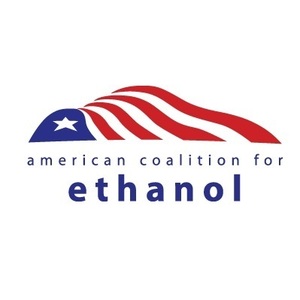ACE participates in OPIS LCFS and Carbon Markets Workshop

December 8, 2022
BY American Coalition for Ethanol
American Coalition for Ethanol CEO Brian Jennings speaks today on a panel entitled “Advancing Carbon Intensity Reduction Efforts in First-Generation Biofuels” with a representative from Clean Fuels Alliance America at the OPIS LCFS and Carbon Markets Workshop in San Diego, California.
Jennings remarks will touch on the success ethanol companies have had under California’s Low Carbon Fuel Standard (LCFS) program and focus on ACE’s efforts to now secure farmers access to LCFS markets based on their adoption of climate-smart agricultural practices. Centerstone to these efforts is the ACE-led Regional Conservation Partnership Program (RCPP) project, with the end goal of securing compensation for farmers who produce low carbon intensity commodities through existing and future LCFS markets. When combined with constant efficiency improvements within ethanol facilities and carbon capture and sequestration, accounting for climate-smart farming practices sets corn ethanol on a trajectory to reach both net-zero and net-negative emissions.
Advertisement
Advertisement
“ACE is leading the effort to ensure the ethanol industry and farmers can better monetize the climate benefits of ethanol in existing and new clean fuel markets,” Jennings said. “Our Board of Directors has committed to support policies recognizing ethanol is part of the climate and health solution while crediting farmers and ethanol producers for activities which help reduce GHG emissions by at least 70% compared to gasoline by 2030 and reach net-zero lifecycle GHG emissions by 2050. ACE is working to make this commitment a reality through policy development and real-world validation of GHG benefits of climate-smart agriculture practices at scale.”
Launched earlier this year, ACE’s carbon intensity (CI) calculator also highlights the need for farm-level practices to receive carbon benefits in clean fuel markets. ACE offers the tool to help its members understand the carbon intensity (CI) of their farms and ethanol operations and created a simplified version of the tool to raise awareness about factors impacting the CI of ethanol.
Advertisement
Advertisement
ACE consultant Jonathon Lehman and Dr. David Clay of the American Society of Agronomy and professor at South Dakota State University, a partner on the RCPP project, spoke at the event last year on behalf of the organization on a panel entitled “Reducing Carbon Intensity in Renewable Fuels with Climate Smart Farming Practices” accompanied by representatives from Gevo and the American Society of Agronomy.
Related Stories
U.S. fuel ethanol capacity fell slightly in April, while biodiesel and renewable diesel capacity held steady, according to data released by the U.S. EIA on June 30. Feedstock consumption was down when compared to the previous month.
XCF Global Inc. on July 8 provided a production update on its flagship New Rise Reno facility, underscoring that the plant has successfully produced SAF, renewable diesel, and renewable naphtha during its initial ramp-up.
The U.S. EPA on July 8 hosted virtual public hearing to gather input on the agency’s recently released proposed rule to set 2026 and 2027 RFS RVOs. Members of the biofuel industry were among those to offer testimony during the event.
The USDA’s Risk Management Agency is implementing multiple changes to the Camelina pilot insurance program for the 2026 and succeeding crop years. The changes will expand coverage options and provide greater flexibility for producers.
EcoCeres Inc. has signed a multi-year agreement to supply British Airways with sustainable aviation fuel (SAF). The fuel will be produced from 100% waste-based biomass feedstock, such as used cooking oil (UCO).
Upcoming Events










